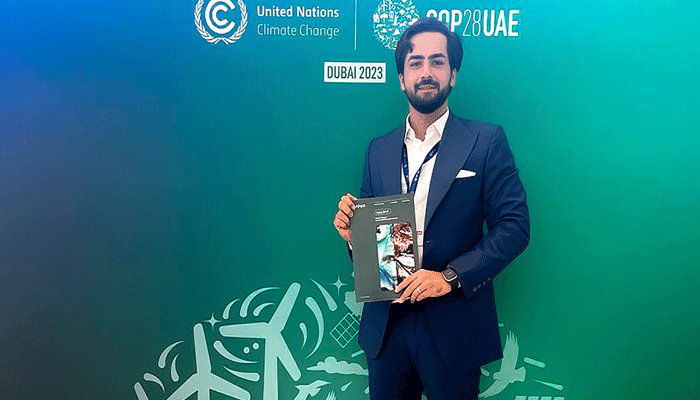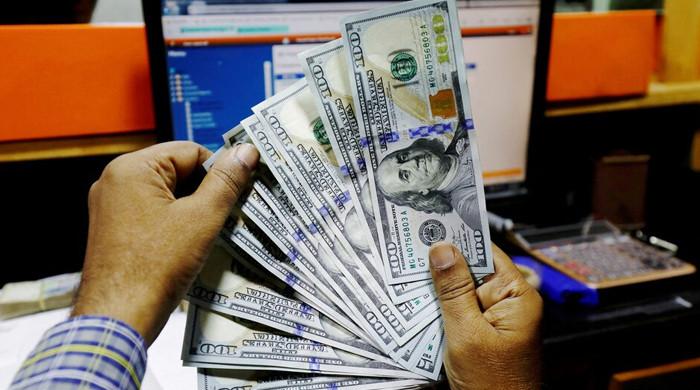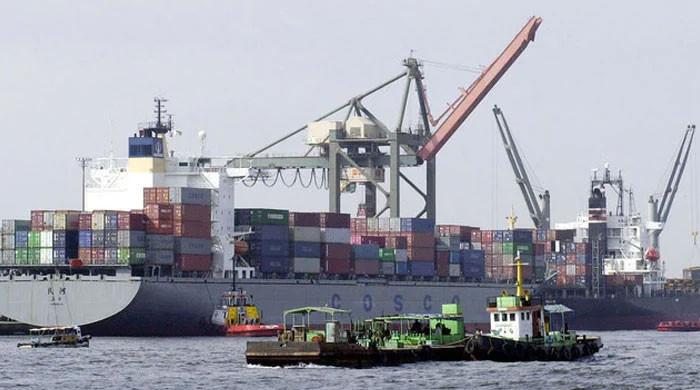Ahya Tech — How a Saudi-Pakistan startup is leading climate action efforts
Platform offers innovative data collection tools ensuring micro-level cognisance of carbon footprints and emissions
December 16, 2023

Despite countries taking stern measures and adopting proactive policies to address climate change and reduce carbon emissions, hurdles in mitigating carbon footprints are an uphill battle that require a rather collective approach with a significant role of private enterprises.
Ahya Technologies — a startup based in Saudi Arabia and Pakistan — is one such company that aims to revolutionise the fight against climate change by ensuring micro-level cognisance and data collection carbon footprint.
The company whose name translates to "rehabilitate or replenish" in Urdu, Arabic, Turkish and Persian languages, aims to address the lack of certified platforms and professionals for data collection, assessment and processing of greenhouse gas (GHG) emissions.
Speaking exclusively to Geo.tv, Ahya's CEO Salaal Hasan elaborated on his company's "AhyaOS" product terming it as "Pakistan's first climate software business [...] that helps businesses measure, report and reduce their emissions, and 'Tawazun' which helps them generate climate financing through voluntary emissions reductions (VERs) commonly known as carbon credits."
Commenting on the hurdles faced by Pakistan regarding addressing climate change and emissions control, Hasan highlighted that despite having one of the lowest emissions intensity in the world, the country is ranked second in the Middle East North Africa region when it comes to total GHG emissions.
"[Pakistan's] private sector has a key issue of emissions intensity, the number of emissions per GDP (or revenue) [which] is coupled with increasing regulations for publicly listed or export businesses to report and reduce their emissions [and] a lack of consultants or solutions [leaving them ill-equipped to reduce their emissions]."
He underscored that "AhyaOS" aims to address this issue as a "transparent and cost-effective GHG operating system that helps the private sector overcome this challenge."
Lamenting on the lack of operating data and its centralisation Hasan said: "You need data pertaining to your buildings, energy, waste, HR, and financials in order to do basic GHG accounting. AhyaOS simplifies this through a data hub and integration capabilities with all your distributed systems (ERP, HRMS) where this may be stored."
Meanwhile, the lack of availability of emission factors is also a key issue, he said while calling for the government to establish a national GHG inventory and database in line with the Paris Agreement.
Responding to a question regarding Ahya's work in Pakistan, Hasan said that the company is working with leading private sector entities in manufacturing, financial services, energy and technology sectors.
"Our target is to work with 25 leading large enterprises and 50 SMEs over the course of the coming 18 months — with the aim to reduce two million tCO2e per annum once deployed," he said while commenting on the company's future plans with regard to Pakistan.
What Ahya offers?
With its "AhyaOS" software, the startup offers a database that allows its customers to have access to measure the carbon emissions and impacts of their activities.
The software, according to the company's website, "converts business activities, expenses, supplier information, and employee data into comprehensive carbon footprint reports" and "ensures adherence to the latest GHG Protocol guidelines" which when coupled with AI-powered analysis, enables the users to keep track of their carbon emissions and chalk out a relevant plan to reduce them.
Through its "Tawazun" service, the startup also provides third-party carbon offsets connecting organisations with verified project developers with the latter assisting the former in reducing their carbon emissions.
Another notable service that Ahya provides is "Ahya API" which allows users — across a wide array of fields including banking, airlines, freight services etc — such as financial services organisations to have access to live data on the effects of their spending on increase in carbon emissions.
Roadmap for Pakistan
Speaking to Geo.tv, Hasan said that the company has been collaborating and advising the Climate Change Ministry and recently published "Issue Brief – Climate Change, Recommendations for Pakistan" highlighting the following six-step approach that the government need to take with regards to climate action.
Recalibration of NDCs: Ahya CEO believes that Pakistan must recalibrate the national determined contributions (NDCs) based on sound assumptions as the country's current NDCs have been forecasted on a 9% GDP growth rate which is simply too aggressive.
"We [Pakistan] have stated that we will achieve 15% of this reduction [...]and require $101 billion in financing (for energy transition) for achieving the remaining 35%," he said.
Measure GHG footprints: "The public sector must develop a national GHG inventory, and update it to measure the country and private sectors GHG footprint with accuracy."
Capacity building: "[Pakistan] needs to build capacity in our agriculture and energy sectors(the two large emitters), plan for climate adaption, build technical capacity, regulations."
Incentivise green transition: "It is imperative that the public sector incentives the private sector and utilises their economic stability and surpluses to lead this transition across three key sectors in textiles, agriculture and energy."
Mandated emissions disclosure: "The private sector must be mandated and regulated to disclose their emissions as is being done by countries worldwide in line with the GRI or IISB standards."
Revolutionise policy framework: "Pakistan is well positioned to obtain foreign investment via climate financing. The lag is of a robust and globally aligned carbon markets policy framework," Hasan noted.











